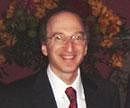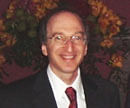

The Royal Swedish Academy of Sciences said American Saul Perlmutter would share the 10 million kronor (USD 1.5 million) award with US-Australian Brian Schmidt and US scientist Adam Riess.
Working in two separate research teams during the 1990s -- Perlmutter in one and Schmidt and Riess in the other -- the scientists raced to map the universe's expansion by analysing a particular type of supernovas, or exploding stars.
They found that the light emitted by more than 50 distant supernovas was weaker than expected, a sign that the universe was expanding at an accelerating rate, the academy said.
"For almost a century the universe has been known to be expanding as a consequence of the Big Bang about 14 billion years ago," the citation said. "However the discovery that this expansion is accelerating is astounding. If the expansion will continue to speed up the universe will end in ice."
Perlmutter, 52, heads the Supernova Cosmology Project at the University of California, Berkeley. Schmidt, 44, is the head of the High-z Supernova Search Team at the Australian National University in Weston Creek, Australia. Riess, 42, is an astronomy professor at Johns Hopkins University and Space Telescope Science Institute in Baltimore, Maryland.
Schmidt said he was just sitting down to have dinner with his family in Canberra, Australia, when the phone call came from the academy.
"I was somewhat suspicious when the Swedish voice came on," Schmidt told The Associated Press. "My knees sort of went weak and I had to walk around and sort my senses out."
The academy said the three researchers were stunned by their own discoveries -- they had expected to find that the expansion of the universe was slowing down. But both teams reached the opposite conclusion: far-away galaxies were racing away from each other at an ever-increasing speed. The acceleration is believed to be driven by dark energy, one of the great mysteries of the universe.
The physics prize was the second Nobel to be announced this year. On Monday the medicine prize went to American Bruce Beutler and French scientist Jules Hoffmann who shared it with Canadian-born Ralph Steinman for their discoveries about the immune system. Steinman died three days before the announcement.
The prestigious Nobel Prizes were established in the will of Swedish industrialist Alfred Nobel, and have been handed out since 1901.
Last year's physics award went to Russian-born scientists Andre Geim and Konstantin Novoselov for groundbreaking experiments with graphene, the strongest and thinnest material known to mankind.
The prizes are handed out every year on December 10, on the anniversary of Nobel's death in 1896.